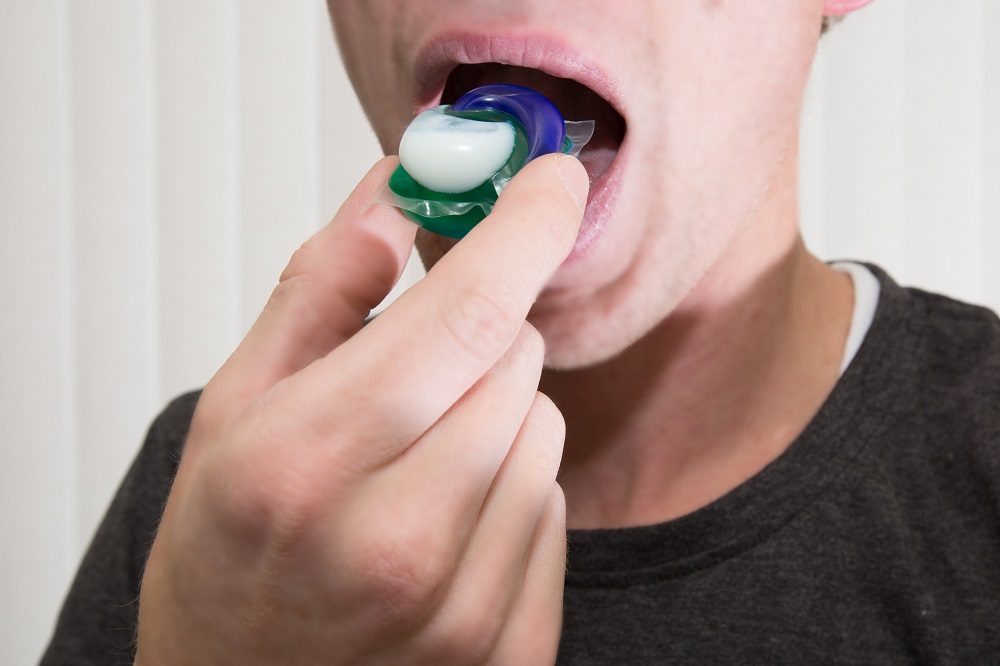Topics

Image Source
As a mother of pre-teen children, I've been exposed to (and forced to participate in) a variety of online challenges. Eating homemade pizza topped with candy and chips, sampling a variety of horribly-flavored jelly beans, squeezing/comparing innumerable samples of slime and standing still while being showered in freezing cold water probably round of my most memorable and "daring" experiences. Even though many of these online challenges are somewhat silly and "fun," quite a few unsafe and disturbing trends have gone viral.
Over the past couple of weeks, the laundry detergent pod challenge has rightfully created a huge media firestorm. YouTube videos showing teens and young adults intentionally biting into and chewing laundry detergent pods not only normalizes and promotes high-risk behavior, but also leads to severe, life-threatening emergencies. Here are some facts about laundry detergent pods to help parents and caregivers protect their children from this unsafe trend:
Why are laundry detergent pods so dangerous?
Laundry detergent pods are water-dissolvable, single-load capsules that contain concentrated liquid detergent. By accidentally squeezing or placing the pod in their mouths, children can sustain a wide range of symptoms including eye irritation and pain, rashes, nausea, vomiting, coughing, choking, fast or labored breathing, drowsiness, lethargy, seizures, and even death.
What do I do if my child has been exposed to laundry detergent from a pod?
Stay calm! Quickly and gently clean the detergent from your child’s body (i.e., irrigate, rinse and cleanse your child’s eyes, mouth and skin) and call the poison control center hotline for further advice and recommendations. If your child is drooling and unable to swallow his/her saliva, persistently vomiting and unable to keep fluids down, breathing quickly and/or more labored, or is unresponsive or minimally responsive to your voice and light touch, seek medical care immediately. Remember to never gag or intentionally force your child to vomit. Vomiting can worsen mucosal injuries and potentially cause your child to aspirate the detergent into their lungs.
What will happen to my child if he/she needs to go to the emergency center?
If your child needs to go to the emergency center, he/she will be triaged, evaluated and treated for their symptoms. Depending on the severity of your child’s symptoms, he/she may need supportive therapy, such as eye irrigation, supplemental oxygen, breathing treatments, anti-nausea medications or IV fluids. Labs, X-rays and subspecialty consults (i.e., ENT or GI doctors) may also be recommended. If your child has persistent or severe symptoms, he/she will likely need to be admitted into the hospital for further observation and care.
How can I keep my child safe at home?
Prevention is key! Keep laundry detergent pods and all other cleaning products, painting/household supplies and medications in a safe and secured area that is not easily seen by or accessible for young children. Also, it’s important to monitor older children and teen’s internet activity and maintain open communication about the dangers of online challenges and trends.
Just remember
Emergency contacts, including the Poison Control Center (1-800-222-1222), your pediatrician or a nurse’s help line, should be updated and kept in a central, easily accessible location. For emergent care, Texas Children’s Hospital’s Emergency Centers in the Texas Medical Center, at West Campus and The Woodlands are open 24/7 for acute, pediatric injuries and illnesses. Additionally, Texas Children’s Urgent Care clinics are open from 4:30 to 11 p.m. on weekdays and noon to 8 p.m. on weekends for urgent medical needs.
If you're interested in learning more about the Texas Children's emergency centers, click here.